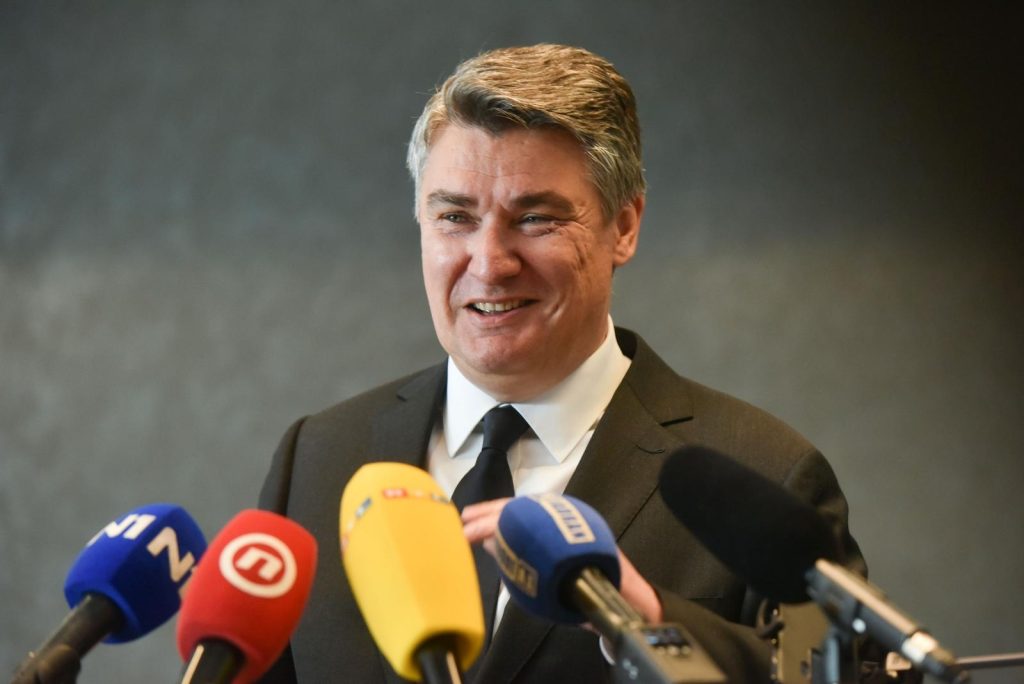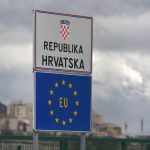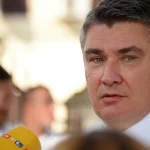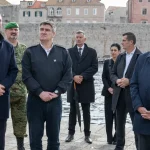During their meeting the two presidents also discussed the adoption of the euro by Croatia and the position of Croats in Bosnia and Herzegovina.
A press release from the Croatian President’s Office notes that the visit to Malta is a return State visit at the invitation of President Vella.
Milanović said that Croatia’s entry into Schengen is of direct interest to Croatia. “We are an open economy, as all European economies should be, according to the fundamental documents of the EU and the European commitment to the idea of free markets,” he underscored.
He added that it is in Croatia’s interest to facilitate the flow of people coming to Croatia and participating in Croatia’s tourist industry and that he expects Malta’s support in this regard.
“I will not claim that it is a done deal, that Croatia will immediately enter the Schengen Area, but I hope for the best,” said Milanović, who will also discuss the topic with the President of the House of Representatives Anġlu Farrugia, Prime Minister Robert Abel and the head of the opposition Bernardo Grech.
The presidents discussed the introduction of the euro in Croatia. Milanović said that it is being treated as a fait accompli and something that seems unstoppable to him.
“Croatia has made a decision. We will have to live with that decision. It is not a worrying decision. It has been tested by many countries, so I am hoping for the best. Of course, we are renouncing one of the basic tools of state sovereignty, monetary sovereignty. Our currency was created in the stormy and turbulent years of our recent history,” said Milanović.
He again criticised the granting of EU membership candidate status to Ukraine and Moldova while Bosnia and Herzegovina was circumvented in that process at the recent EU summit meeting.
“Unfortunately, this is an issue where the attitude towards this topic goes from disappointment to anger, and things only go from bad to worse. The last move was to grant Ukraine and Moldova EU candidate status while ignoring Bosnia and Herzegovina at the same time. That has nothing to do with prudent statesmanship, foresight and responsibility in international politics. That is something that really disappointed me,” Milanović said.
He underscored that that is difficult to justify politically, tactically and ultimately ethically why the European Council – as the body that has a final say – did not grant candidate status to Bosnia and Herzegovina.
“That omission goes hand in hand with a number of other omissions that we witnessed in the Western Balkans, such as the dynamics of the negotiation process of Montenegro and the absence of the beginning of the accession negotiations of Albania and North Macedonia. And finally, Serbia, which, unfortunately, chose its path and is clearly not that interested in the European processes and rules that it has to follow. Maybe they will change their decision within a reasonable period of time, maybe not,” Milanović said, as carried by the press release.
According to the press release, Vella said that he understood the Croatian president’s sensitivity on the issue of the rights of Croats in Bosnia and Herzegovina and emphasised that the decades-long efforts of some candidates from the Western Balkans have not been rewarded.
A much greater commitment of the European Union to the countries of the Western Balkans is needed. In addition to leading to discontent in these countries, there is also a danger that these countries will begin to turn to the influence of third countries. A more serious and clearer European perspective would contribute, among other things, to the stability of Southeast Europe, said Vella.
In the context of Croatia’s accession to the EU, Milanović said that the negotiations for membership in the Union were conducted with the knowledge that there are about 600,000 Croatian citizens in Bosnia and Herzegovina.
“Therefore, it cannot be said that these people became Croatian citizens after Croatia’s entry into the EU. They were that before 2013. A large number of Croats living in Croatia originate from Bosnia and Herzegovina. Croatia is obliged to help these people, to try to contribute to solving their problems, but in a peaceful way,” said Milanović.
For more, check out our politics section.











